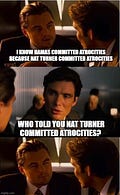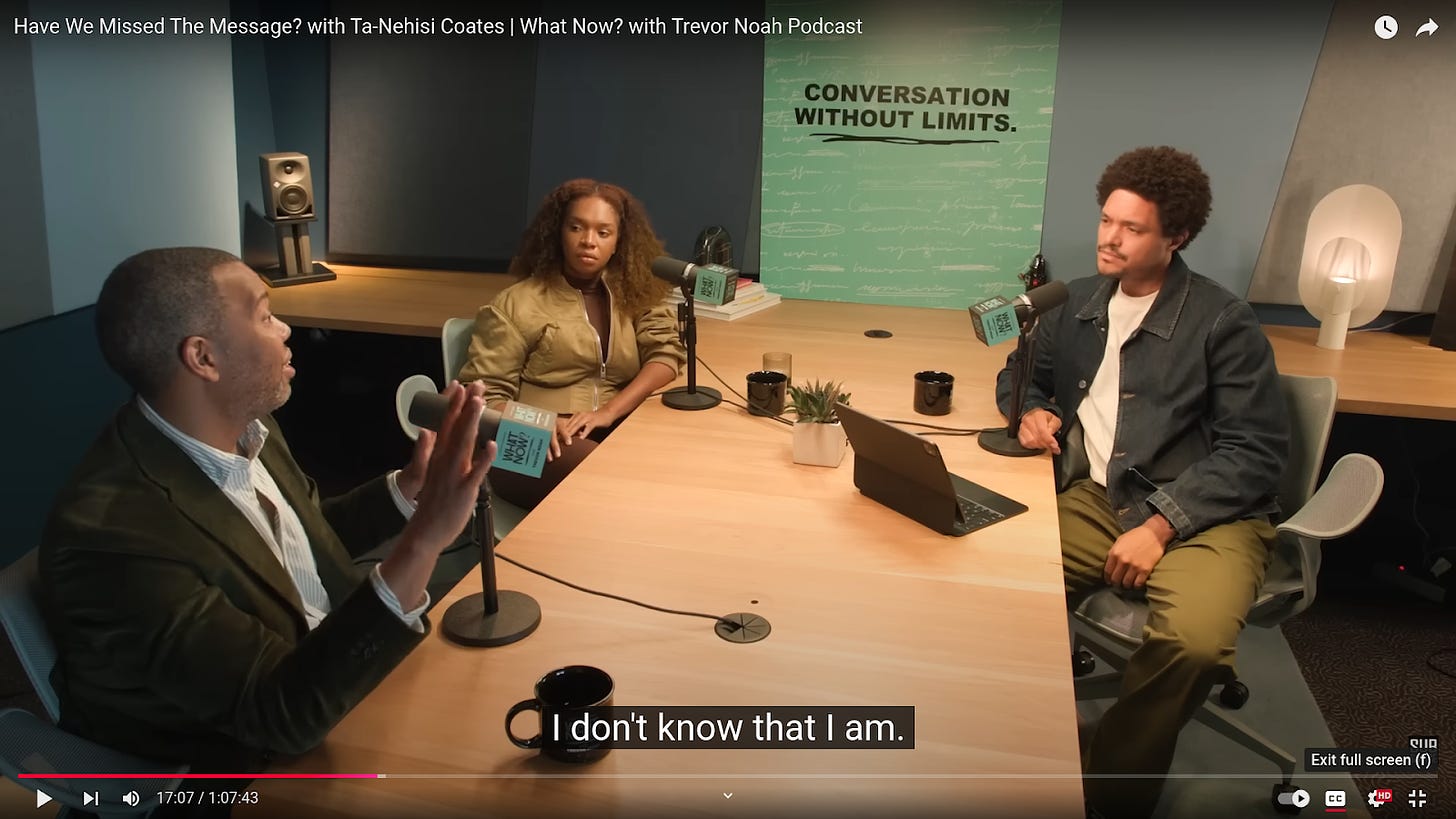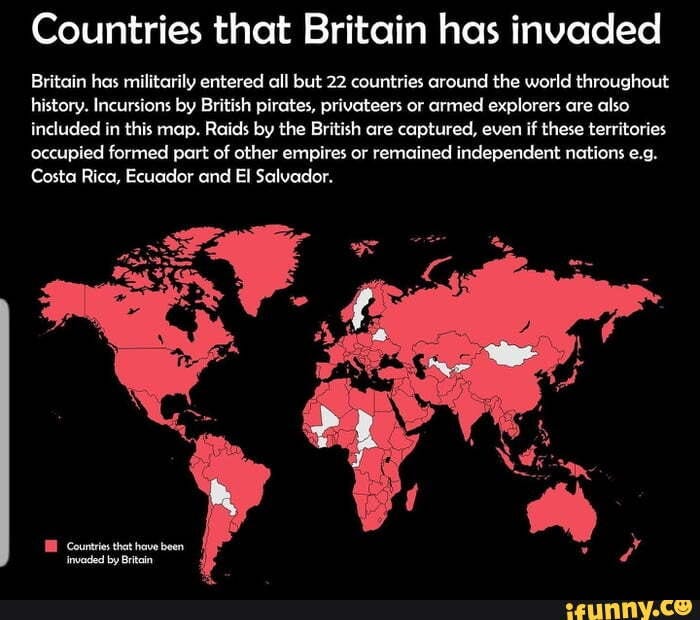The Political Development of Ta Nehisi Coates
On empathy and historical investigation as research methods
American writer Ta Nehisi Coates has a new book called The Message and has been saying some things that make sense about Palestine, apparently in the book and during his promotion of it. I am not sure what to make of Coates. He’s a writer, he teaches writing, as he’s been reminded on television recently, he’s been given great awards and accolades and publishes in the highest literary circles of America (all of which, he was reminded on CBS, can be taken away). From what I’ve seen (I will read the book but I have not yet) the book is intended for writers. I’ve always had some discomfort with the idea of identifying as a writer. Writing is a tool; you should identify with the reason you’re using the tool. Hassan Nasrallah’s principal activity was preparing and delivering speeches, but I wouldn’t have called him a public speaker. I have made a lot of youtube videos this past year, but I wouldn’t call myself a youtuber. As for the accoladed writers, there seems to be an agreed-upon illusion that their words have some kind of unique power beyond that of normal writers. You might find the same facts (with or without the citations) or the same insights elsewhere, but there is something special about it when it’s given to you by a Writer. I’m not even above that feeling - I like reading the work of an exalted Writer as much as anyone. I just think it’s a shared illusion that we’re all partaking in. And it isn’t a great time to have illusions. Not about this.
Here I’m not writing about the viral CBS interview clip where some pro-Israel TV host threw all the regular talking points at Coates, who answered them with great ease. I want to look instead about his debriefing of that and discussion of the Palestine part of his book with Trevor Noah and co-host Christiana Mbakwe Medina, on Noah’s podcast. I think some of you may have guessed the part of it that I want to talk about.
Both Noah and Coates say a lot of good things worth listening to in here, for example:
Noah points out that no pro-Israel friend of his can argue that Israel *isn’t* an apartheid state
Coates points out that there can be no justification for apartheid, and that in trying to justify it, Israel’s defenders admit that they believe there can be justifications for racism, apartheid – and now genocide as well.
But among these good things, Coates gets to a moment, around minute 14, where he talks about October 7th, and the discussion here pretty well cancels out the good he does elsewhere in the interview.
He says, “I try to maintain my great horror at October 7th… because human life really matters to me.” A minute later, he continues, asking the rhetorical question: “Is there room in the world… to have genuine genuine horror about what happened on October 7th? And I’m not Palestinian, I’m Ta Nehisi Coates. There’s no reason that I can apprehend to justify anything like that.”
In his recent interview with Middle East Eye, Coates talks about how he writes much better when he can actually go and see for himself. Indeed Trevor Noah commended Coates for going and seeing for himself and bringing back the words after doing so. But Coates didn’t see October 7th. I have seen everything available to the public that happened on October 7th; I have heard descriptions from journalists who attended the Israeli screening of the footage they assembled for the express purpose of trying to create support for genocide.
I collected everything that was available up to November 1, 2023.
Max Blumenthal from the Grayzone made a film, Atrocity Inc., about how Israel generated a series of lies about October 7th, traced the sources of the lies, and debunked them. He’s also written extensively about it; the Grayzone has covered the whole story extensively since October 7th.
Asa Winstanley from the Electronic Intifada wrote about how many of the Israelis who died on October 7th were killed by Israel. Electronic Intifada has covered this story extensively for the whole year.
What happened on October 7th was an early morning raid by trained, disciplined guerrilla forces on the Israeli bases that maintain the siege on Gaza, a raid whose goal was primarily to take military prisoners that could be exchanged for the thousands of Palestinian prisoners that Israel keeps and tortures. Prisoners who, if Israel has its way, will never be free. One group of fighters from the Qassam brigades, Hamas’s armed wing, were surprised to encounter a rave party, the Nova Music Festival, whose location beside an Israeli air force base had only been announced to attendees just before. Israelis trying to flee this music festival were slaughtered from the air by Israeli helicopter gunships. When Qassam fighters infiltrated into the fortified villages that enclose Gaza, Israelis were also slaughtered in these villages by tank fire from the Israeli army who happily killed Israelis for the chance to kill Palestinians - the new rules that Israel lives by, as I’ve discussed in a previous post.
The “great horrors” that circulated as stories after October 7th, about 40 beheaded babies, about rape being used as a weapon of war – turned out to be fabrications, sourced back to a small number of Israelis whose stories fell apart, as Max Blumenthal details in the film Atrocity Inc.
Here’s the point: Coates didn’t “go and see” for himself. He doesn’t appear to have done any investigation at all. Instead, he has simply accepted the lies told by the colonizer. Given the importance of analogies in Coates’s writing, he should know that colonizers lie about the people they oppress. He should know the kinds of lies they tell, the nature of atrocity propaganda, and the purpose of it in preparing the public for genocidal violence against the oppressed. How many times has this specific pattern of lies recurred in American history? Where has it led, each time? Coates needs to make this connection.
When he does make an analogy to American history, Coates tells the story of Nat Turner’s rebellion – and does so also in a way that doesn’t seem to recognize that slavers could lie about what rebellious slaves did. About Nat Turner, Coates says, “this man slaughtered babies in their cribs.” In fact, as I mentioned in our last tankie therapy session, my first thought when I heard Normal Finkelstein first make this analogy last year (the analogy of October 7th 2023 with Nat Turner’s 1831 rebellion) was that perhaps Nat Turner didn’t commit atrocities either. Having watched the construction of atrocity propaganda in real time this year, it is hard to imagine the slaver society told the truth about Nat Turner’s rebellion in 1831 (by the way I covered this rebellion in my historical podcast about four years ago now). It is incorrect to rely on a history written by the enslavers about atrocities committed during a slave revolt 100 years ago as analogical evidence that atrocities were committed during a guerrilla operation last year.
No babies were slaughtered in their cribs on October 7th. No babies were beheaded. There was, according to the Ha’aretz list, one child who was killed by accident in one of the Israeli villages of the Gaza Envelope. The Palestinian Resistance fighters who attacked fortified Israeli bases on that day were not acting out the degradation of their lives (probably neither was Nat Turner). They were enacting a military strategy and doing so according to their (Islamic) military ethics, which do not allow harm to civilians nor sexual violence. If Coates can listen to Israelis, can give them a hearing, he should also be able to give a hearing to the voices of the Resistance: spokespeople, political leaders, intellectuals. I’ll return to that point below, but let me address how Coates made it even worse:
At 15:48, he says: “I’ve done this thought experiment for myself over and over. Does the degradation and dehumanization of slavery make it so that you can look past something like that? And I think I can accurately imagine that there were enslaved people that said this is too far, I can’t do that. Now here’s the flip side of it. And I haven’t said it out loud. Were I 20 years old, born into Gaza, which is a giant open air jail - if my father is a fisherman and he goes too far out to the sea he might get shot, if my mother picks the olive trees and she gets too close to the walls she might be shot, if my sister has cancer and she needs treatment and if I can’t get the right permit for it she might die? And I grow up under that oppression and that poverty. And the wall comes down. Am I also strong enough or even constructed in such a way where I say, this is too far. I don’t know that I am.”
This thought experiment has nothing to do with reality. Coates has tried to use empathy and imagination but he doesn’t have the factual foundation to get where he is trying to go. It’s true, the conditions in Gaza are like he describes - worse, in fact - but that has not installed in Palestinians a drive to go and commit “great horror”. Palestinians have a drive to be left alone in their land. Palestinians have a drive to study and pursue education. Many Palestinians have a drive to take care of the land in their Mediterranean ecosystem of olive and orange trees. The Gaza-grown, vengeful Ta-Nehisi that Coates is trying to imagine doesn’t exist. The real people weren’t waiting for a chance to get even, or inflict the degradation they’ve suffered on their oppressors. They were waiting for a chance to get their freedom and to get their land back, and they did so in an organized armed struggle, not chaotic violence. There’s no need for this kind of imaginative exercise when the facts are available.
Immediately after this interview, some cartoonish Israeli writers took this thought experiment and ran with it to defame Coates. By using his imaginative exercise to defame the Palestinian Resistance and by avoiding investigating for himself what actually happened on October 7th, Coates rendered himself defenseless against the pro-Israel lobby’s smears. Coates first decided to believe the lies about “horrors” on October 7th, then said he didn’t know if he had the strength to not commit such horrors. This was all unnecessary: the facts of what happened don’t match his implication and the logic of the Resistance exists entirely outside of the idea of inflicting reciprocal degradation.
Coates is a writer who uses autobiography and his background is an open book. His father was a Black Panther and the publisher of Black Classic Press, which published many important Black intellectuals. Some of what Coates says on Noah’s podcast suggests that he missed many of the important points that these intellectuals were making. He says that in Israel, he saw “some of the nationalist impulse that I grew up under”, but “taken to the Nth degree.” But Zionism is nothing like Black Nationalism taken to the Nth degree. Zionism is a form of colonialism, and Black Nationalism is an anti-colonial ideology. At 24:45, he says about Zionism:
“I can feel the parallels, the fraternity for it and the sympathy, I understand it. But you see where it goes. And a people who have been repeatedly degraded over the centuries, massacred, killed, chased, ethnically cleansed themselves out of Spain, can go somewhere and create a system of dire inhumanity against other people. That was a challenge for me as a Black person, because I started thinking, what would we be if we had power? What would we do? “
[One day I might return to this historical question of medieval Spain, which I happen to know a lot about – but it’s a huge mess and Coates bringing it in here adds more muddle to the thinking, not less.]
The belief that Coates holds that Black people, in power, would become Zionists, is incorrect. Not because it isn’t humanly possible - of course it is - but because it shows a lack of understanding of what Zionism is. Coates relies too much on the analogy he has made between two things that are much unlike one another - the Black nationalism published by W.P. Coates’s press (John Henrik Clarke, Bobby Seale, Amiri Baraka) - and the Zionism of Herzl and Jabotinsky, of Bill Clinton and of Netanyahu. Zionism, as I’ve documented here in an eight-part series, is an anti-Jewish ideology. And as I’ve documented in my historical podcast, it was an ideology of its time - and that time was the Scramble for Africa - and that ideology was of European colonization. You can like it or hate it, but Black Nationalism has nothing to do with this. Coates knows this, but it seems to slip through his fingers in his over-empathizing and his over-connecting of these ideologies.
The tree from which Zionism springs is the Anglo-American colonialism whose settler colonial branches live in Canada, the US, Australia, New Zealand, and whose devastated post-colonies in Asia and Africa continue to pay trillions in tribute (tribute given various names: repatriated profits, brain drain, suppressed wages, interest on debts…) to their former colonial masters.
The tree from which Black Nationalism springs is the tree of resistance to all of this, and it shares much with other ideologies of national liberation from colonialism around the world. European colonization of the world is a few centuries old and in terms of technological and ideological sophistication (including specifically the deployment of lies) it is unique. When Coates says that it isn’t unique to Zionism but it is a “human problem”, it’s another case of over-empathizing, this time with European colonialism:
“This doesn’t work if you can’t see yourself within Israel and within Zionism. If you think this is just evil people doing some evil thing, you’ve missed it. This started somewhere. Once I started reading the documents about Zionism, on one level, I recognized the colonialist discourse, but the other part was I recognize the yearning.”
But Zionist yearning, for a colony, could not have been more different from Black Nationalist yearning, for liberation. To achieve hegemony over the Jewish community, Zionists had to defeat both religious and secular Jewish traditions and identities. There were Jews who yearned for liberation from European racism, who Coates should empathize with. But they were not Zionists.
In an article about The Message, one of Coates’s friends said that Coates goes through a very public learning process. He’s approached his study from the wrong direction, starting with Zionist intellectualism and discovering the evils that occur as it’s applied on the ground. For the next phase of the learning process, the Resistance’s intellectuals should be the avenue of approach. As a writer’s writer, how about the late Refaat Alareer? Ghassan Kanafani would be a good one to have on the shelf. Salman Abu Sitta is way underrated. Hassan Nasrallah’s speeches. Abu Obeida’s speeches. Yahya Sinwar’s novel too. Since Coates has already said that he doesn’t care about the awards and accolades, that he wants to be a writer to go into those kinds of places, that’s the direction to head in. More historical investigation. More reading the words of those who never had illusions about Zionism in the first place.







Anyone who swims with the NED isn't doing their mind any favors, that money eats the soul. Coates, James Baldwin play a pernicious role of sitting in an elite corner washing the dirty laundry in limited public view, so the West can point to it's competitors as failing to do the same (ignoring that literature and methods of resolving conflicts in other cultures are rarely translated for viewing in the West, again, unless they serve NED values). When it comes to driving a solution, they are about as illuminating as a Hollywood movie on Malcom X.
Incredible piece. You have outdone yourself.